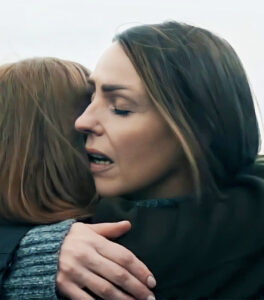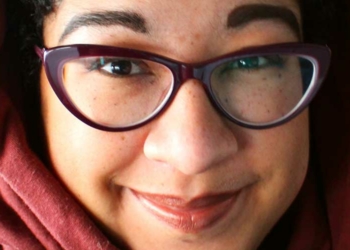For the last few weeks, like millions of other people across the country, I have been enjoying the Sunday night treat that has been Vigil. Now, I have been reliably informed that as a show it is highly unrealistic. Apparently submarines aren’t designed for perfect camera angles, nor do the police rely so much on codes dependent on them all remembering each other’s favourite books. But one element I have found realistic, and by far one of the most enjoyable parts, has been the lesbian relationship portrayed throughout between lead detectives, Amy (Suranne Jones) and Kirsten (Rose Leslie). They have chemistry, their relationship feels natural but, most refreshing of all I have found, their relationship, rather than take centre stage, is simply one background note in a complex symphony of Cold War style drama.
The last few years have admittedly seen a boom in lesbian representation across both TV and cinema. Film especially I’ve found has decided in the last 10 years that lesbians exist, and they want to show us lesbian lives. Films such as Carol and The Favourite, and even up to last year’s disaster that was The Prom, have tried to show us a range of lesbian experiences across the years. Unfortunately, I must confess, they have all left me cold.
Why? Well, the problem lies within the representations we have been given. When filmmakers wish to show us lesbians and lesbian experiences, it seems they only mean one of two possible choices. The first is that of the period lesbian romance (think Ammonite, Portrait of a Lady on Fire or The World to Come). Picture two women in tightly bound corseted dresses, at least one of whom is going to be married to a man. Add in windswept scenery, some lingering stares, and one incredibly awkward, comes out of nowhere sex scene, and you’ve described the vast majority of historical lesbian films made over the last decade. And, of course, ensure at the end that either one of both return to their husbands, never to see each other again. Now, there are some variations on this. Carol is set in a city, and features no corsets. The Favourite plays itself as a comedy rather than a lesbian romance (and as a result, was a much more enjoyable version of this trope). And then there’s Lizzie, where the sex scene is so out of place that even Kristen Stewart, a bisexual actress, couldn’t make it seem either realistic or pleasant.
The second choice given to us is the ‘coming out’ film. Think Happiest Season, the Christmas lesbian film that no-one asked for. These tend to be set in the modern day, and the plot revolves around adult characters coming out, or trying to come out, to families and friends, and the impacts of this. Now, I’m not trying to dismiss the ‘coming out’ moment as it’s important in many gay people’s lives, or trying to suggest that it’s necessarily easy to come out as an adult. However, watching these films, you’d think that lesbian life stops the moment you come out, as if there aren’t a whole wealth of lesbian experiences beyond this point to be shared and captured. To watch either of these types of films, you’d also think that all that matters in our lives are our romantic relationships, as if we aren’t individuals in ourselves with stories wanting to be told.

This is why I’ve enjoyed Vigil. Neither of the characters shown, Amy or Kirsten, are defined by their sexuality, and their relationship, whilst given space, is certainly not treated as the centre of their story. It’s refreshing to see, and far more representative of the lesbians and bisexual women I know, whose relationships make up one aspect of otherwise full and interesting lives. Of course, I want to see more lesbians on my screen, and a far greater diversity of lesbians also – older lesbians, butch lesbians, lesbians of different backgrounds and ethnicities, but I want these women to be characters separate to their lesbianism. Casual representation, I believe, has far greater value than characters whose sole defining features are their sexualities.
To demonstrate, let me contrast the casual representation of Vigil with another recent TV show. Sex Education, which in its first two seasons had characters who felt nuanced and complex, has introduced its first ‘non-binary’ character for season 3. This character is neither nuanced or interesting, and her whole storyline involves her identity – from unnecessary pronoun discussions, to convincing a boy that dating her would make him ‘queer’. This is poor representation, and poor TV. But this is what we risk if we accept any form of representation as something worth celebrating, rather than asking for more, and asking for representation done better.
We lesbians know that our lives are not made up of just our sexuality and relationships, but of our identities and experiences beyond those. We need to celebrate the media that portrays our lives accurately, and in doing so encourage the lesbians of tomorrow to be proud of themselves, not just as lesbians, but as women too.
Photos: BBC
Kat Howard is a lesbian radical feminist, working as a writer and secondary school teacher.
Kat Howard tweets at @RadFem_KatH
























Comments
No comments yet, be the first to leave a comment.